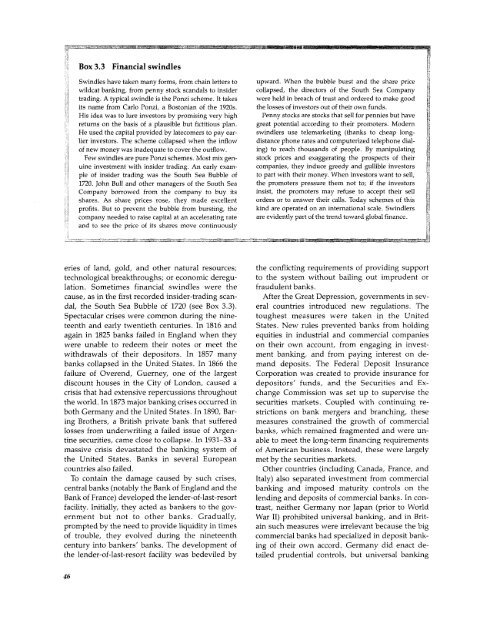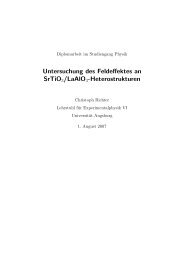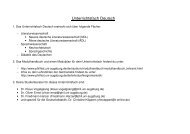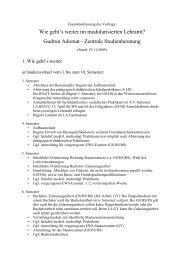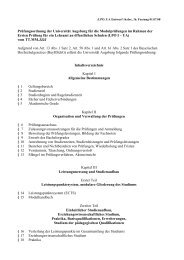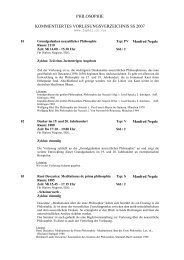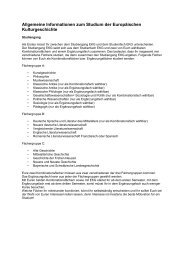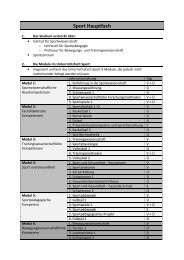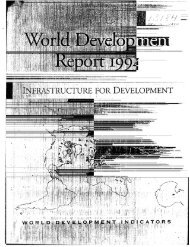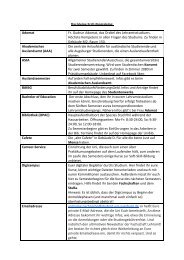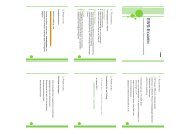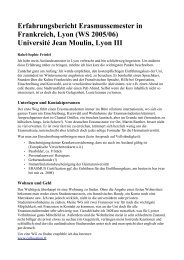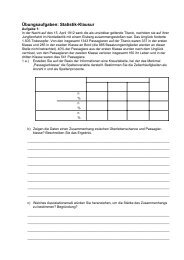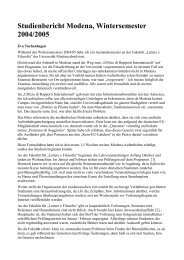Financial systems and development
Financial systems and development
Financial systems and development
Create successful ePaper yourself
Turn your PDF publications into a flip-book with our unique Google optimized e-Paper software.
Box 3.3 <strong>Financial</strong> swindles<br />
i Swindles have taken many forms, from chain letters to upward. When the bubble burst <strong>and</strong> the share price<br />
wildcat banking, from penny stock sc<strong>and</strong>als to insider collapsed, the directors of the South Sea Company<br />
trading. A typical swindle is the Ponzi scheme. It takes were held in breach of trust <strong>and</strong> ordered to make good<br />
its name from Carlo Ponzi, a Bostonian of the 1920s. the losses of investors out of their own funds.<br />
His idea was to lure investors by promising very high Penny stocks are stocks that sell for pennies but have<br />
returns on the basis of a plausible but fictitious plan. great potential according to their promoters. Modern<br />
He used the capital provided by latecomers to pay ear- swindlers use telemarketing (thanks to cheap longlier<br />
investors. The scheme collapsed when the inflow distance phone rates <strong>and</strong> computerized telephone dialof<br />
new money was inadequate to cover the outflow. ing) to reach thous<strong>and</strong>s of people. By manipulating<br />
Few swindles are pure Ponzi schemes. Most mix gen- stock prices <strong>and</strong> exaggerating the prospects of their<br />
uine investment with insider trading. An early exam- companies, they induce greedy <strong>and</strong> gullible investors<br />
ple of insider trading was the South Sea Bubble of to part with their money. When investors want to sell,<br />
1720. John Bull <strong>and</strong> other managers of the South Sea the promoters pressure them not to; if the investors<br />
Company borrowed from the company to buy its insist, the promoters may refuse to accept their sell<br />
l shares. As share prices rose, they made excellent orders or to answer their calls. Today schemes of this<br />
profits. But to prevent the bubble from bursting, the kind are operated on an international scale. Swindlers<br />
company needed to raise capital at an accelerating rate are evidently part of the trend toward global finance.<br />
<strong>and</strong> to see the price of its shares move continuously<br />
eries of l<strong>and</strong>, gold, <strong>and</strong> other natural resources; the conflicting requirements of providing support<br />
technological breakthroughs; or economic deregu- to the system without bailing out imprudent or<br />
lation. Sometimes financial swindles were the fraudulent banks.<br />
cause, as in the first recorded insider-trading scan- After the Great Depression, governments in sevdal,<br />
the South Sea Bubble of 1720 (see Box 3.3). eral countries introduced new regulations. The<br />
Spectacular crises were common during the nine- toughest measures were taken in the United<br />
teenth <strong>and</strong> early twentieth centuries. In 1816 <strong>and</strong> States. New rules prevented banks from holding<br />
again in 1825 banks failed in Engl<strong>and</strong> when they equities in industrial <strong>and</strong> commercial companies<br />
were unable to redeem their notes or meet the on their own account, from engaging in investwithdrawals<br />
of their depositors. In 1857 many ment banking, <strong>and</strong> from paying interest on debanks<br />
collapsed in the United States. In 1866 the m<strong>and</strong> deposits. The Federal Deposit Insurance<br />
failure of Overend, Guerney, one of the largest Corporation was created to provide insurance for<br />
discount houses in the City of London, caused a depositors' funds, <strong>and</strong> the Securities <strong>and</strong> Excrisis<br />
that had extensive repercussions throughout change Commission was set up to supervise the<br />
the world. In 1873 major banking crises occurred in securities markets. Coupled with continuing reboth<br />
Germany <strong>and</strong> the United States. In 1890, Bar- strictions on bank mergers <strong>and</strong> branching, these<br />
ing Brothers, a British private bank that suffered measures constrained the growth of commercial<br />
losses from underwriting a failed issue of Argen- banks, which remained fragmented <strong>and</strong> were untine<br />
securities, came close to collapse. In 1931-33 a able to meet the long-term financing requirements<br />
massive crisis devastated the banking system of of American business. Instead, these were largely<br />
the United States. Banks in several European met by the securities markets.<br />
countries also failed.<br />
Other countries (including Canada, France, <strong>and</strong><br />
To contain the damage caused by such crises, Italy) also separated investment from commercial<br />
central banks (notably the Bank of Engl<strong>and</strong> <strong>and</strong> the banking <strong>and</strong> imposed maturity controls on the<br />
Bank of France) developed the lender-of-last-resort lending <strong>and</strong> deposits of commercial banks. In confacility.<br />
Initially, they acted as bankers to the gov- trast, neither Germany nor Japan (prior to World<br />
ernment but not to other banks. Gradually, War II) prohibited universal banking, <strong>and</strong> in Britprompted<br />
by the need to provide liquidity in times ain such measures were irrelevant because the big<br />
of trouble, they evolved during the nineteenth commercial banks had specialized in deposit bankcentury<br />
into bankers' banks. The <strong>development</strong> of ing of their own accord. Germany did enact dethe<br />
lender-of-last-resort facility was bedeviled by tailed prudential controls, but universal banking<br />
46


